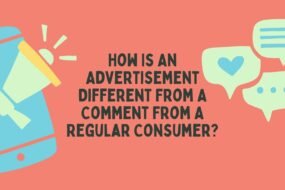
Marketing cost analysis is a crucial aspect of any marketing strategy, as it provides valuable insights into marketing campaigns’ effectiveness and helps identify areas for improvement. By thoroughly analyzing marketing costs, marketers can better understand where their budget is being allocated, which tactics yield the highest return on investment, and where adjustments can be made to optimize spending. This blog, “Why might a marketer want to engage in marketing cost analysis?” will explore the importance of marketing cost analysis and why it should be a key focus for any marketer looking to maximize their resources and drive results.
Overview Of Marketing Costs
Marketing costs refer to expenses incurred by a business to promote its products or services to potential customers. These expenses include advertising, public relations, market research, and promotional activities. Monitoring and optimizing marketing costs are essential for achieving a favorable return on investment and sustaining business growth.
Marketing costs vary greatly depending on the industry, company size, target audience, and marketing strategies. However, here’s an overview of common marketing cost expenses:
- Advertising: This includes expenses for online ads (such as Google Ads, social media ads, display ads), print ads (newspapers, magazines), outdoor advertising (billboards, posters), TV, radio, and other forms of paid promotion.
- Content Creation: Costs associated with creating various types of content, such as blog posts, videos, infographics, podcasts, SEO content writing and other materials used for marketing purposes.
- Social Media Management: Expenses for social media marketing tools, paid social media advertising, and personnel costs for managing social media accounts.
- Search Engine Optimization (SEO): The costs of SEO audit tools, hiring SEO experts, and other expenses related to optimizing website content for better search engine rankings.
- Email Marketing: Expenses for email marketing platforms, design tools, and personnel costs for creating and sending marketing emails.
- Public Relations (PR): Costs for PR agencies, press releases, events, and other activities aimed at building and maintaining a positive public image.
- Market Research: Expenses for conducting market research, surveys, focus groups, and other methods to gather insights about target audiences and competitors.
- Website Development And Maintenance: Costs associated with building and maintaining a company website, including web design, hosting, domain registration, and updates.
- Marketing Software And Tools: Expenses for marketing automation tools, CRM systems, analytics platforms, and other software used to manage and optimize marketing campaigns.
- Promotional Materials: Costs for branded merchandise, promotional giveaways, and other materials used for offline marketing activities.
- Event Marketing: Expenses for sponsoring or hosting events, trade shows, conferences, and other in-person marketing initiatives.
- Affiliate Marketing: Costs associated with affiliate commissions, affiliate management platforms, and other expenses related to affiliate marketing programs.
- Influencer Marketing: Expenses for collaborating with influencers, including payments, free products/services, and agency fees.
- Training And Education: Costs for marketing training programs, workshops, conferences, and certifications for marketing personnel.
- Legal And Compliance: Expenses related to ensuring marketing materials comply with relevant laws and regulations, including legal consultations and compliance software.
- Miscellaneous Expenses: Other miscellaneous costs such as office supplies, travel expenses for marketing teams, and any other ad-hoc marketing expenses.
Businesses must carefully budget for these marketing expenses and continuously evaluate the effectiveness of their marketing strategies to optimize their return on investment (ROI).
Understanding The Importance Of Marketing Cost Analysis
Marketing cost analysis not only helps in optimizing budget allocation but also enables marketers to make data-driven decisions. By delving into the breakdown of expenses, marketers can assess the performance of different marketing channels and tactics, allowing them to reallocate resources effectively.
Furthermore, analyzing costs helps set achievable goals, monitor progress, and accurately measure ROI. In today’s competitive market landscape, staying ahead requires continuous evaluation and refinement of marketing strategies, making marketing cost analysis an indispensable tool for achieving long-term success.
Benefits Of Engaging In Marketing Cost Analysis
Engaging in marketing cost analysis offers several key benefits for businesses. Firstly, it provides valuable insights into the performance of marketing campaigns, allowing marketers to identify which strategies yield the best results.
Companies can optimize their marketing spend to increase ROI by understanding the cost-effectiveness of different initiatives. Additionally, cost analysis helps identify areas of inefficiency or overspending, enabling businesses to make informed decisions about resource allocation.
Ultimately, by regularly evaluating marketing costs, organizations can enhance their overall marketing strategy, drive better results, and achieve sustainable growth in the long run.
Why Might A Marketer Want To Engage In Marketing Cost Analysis?
Marketing cost analysis involves evaluating all expenses associated with marketing efforts to determine their impact on overall business goals. Let’s explore why marketers should use marketing cost analysis and how it can benefit their organizations.
Understanding Resource Allocation
One primary reason for conducting marketing cost analysis is to gain insight into resource allocation. Marketing budgets are often limited, and allocating resources effectively is paramount for achieving maximum return on investment (ROI).
By analyzing the costs associated with various marketing channels, campaigns, and initiatives, marketers can identify which ones yield the highest ROI and allocate resources accordingly. This ensures that funds are allocated to strategies most likely to generate revenue and drive business growth.
Optimizing Marketing Strategies
Marketing is not a one-size-fits-all endeavor. What works for one company may not necessarily work for another. Therefore, marketers must evaluate and optimize their strategies to remain competitive. Marketing cost analysis provides valuable data that can be used to assess the performance of different marketing tactics.
By analyzing the cost per acquisition, cost per lead, and other key metrics, marketers can identify which strategies are most effective and refine their approach accordingly. This iterative optimization process is crucial for staying ahead of the competition and adapting to changing market conditions.
Enhancing Budget Efficiency
In today’s fast-paced business environment, every dollar counts. Marketers are under constant pressure to demonstrate the ROI of their efforts and justify their budgets. Marketing cost analysis allows them to identify inefficiencies and areas where costs can be optimized.
By eliminating unnecessary expenses and reallocating resources to high-performing strategies, marketers can maximize the impact of their budgets and achieve better results with less investment. This not only improves the bottom line but also enhances the overall efficiency of the marketing department.
Informing Strategic Decision-Making
Effective decision-making is the cornerstone of successful marketing. Every decision carries risks and rewards, whether launching a new product, entering a new market, or expanding into new channels. Marketing cost analysis provides valuable insights that can inform strategic decision-making processes.
Marketers can make more informed decisions aligned with the overall business objectives by understanding the costs of different options and their potential impact on ROI. This reduces the likelihood of costly mistakes and ensures that resources are invested in initiatives most likely to drive success.
Demonstrating Accountability
In today’s data-driven business environment, accountability is more important than ever. Marketers are expected to justify their decisions and demonstrate the impact of their efforts on the bottom line. Marketing cost analysis provides the data and insights needed to prove the effectiveness of marketing strategies and justify budget allocations.
By tracking key metrics and benchmarks, marketers can show stakeholders the tangible results of their efforts and build trust and credibility within the organization. This not only strengthens the position of the marketing department but also fosters a culture of accountability and data-driven decision-making throughout the organization.
Mitigating Risks
Every marketing initiative carries inherent risks, whether investing in a new advertising campaign or launching a new product. Marketing cost analysis can help mitigate these risks by providing valuable insights into different strategies’ potential costs and benefits.
By conducting thorough cost-benefit analyses, marketers can assess the possible risks and rewards of various initiatives and make more informed decisions about where to invest their resources. This reduces the likelihood of costly mistakes and ensures that resources are allocated to initiatives with the highest probability of success.
How To Conduct A Marketing Cost Analysis?
To effectively conduct a marketing cost analysis, gather all relevant data related to your marketing expenses and performance metrics. Utilize tools like spreadsheets or specialized software to organize and analyze this data.
Next, key performance indicators, such as return on investment (ROI), cost per lead, and customer acquisition cost, will be calculated. Compare these metrics across different marketing channels and campaigns to determine their effectiveness. Identify areas where costs can be optimized or reallocated for better results.
Lastly, regularly review and update your cost analysis to track progress and make informed decisions for future marketing strategies. Conducting a thorough marketing cost analysis is essential for maximizing the impact of your marketing efforts and achieving sustainable growth.
Using Data From Marketing Cost Analysis To Improve Strategies
Once you have compiled and analyzed the data from your marketing cost analysis, you can use the insights gained to enhance your marketing strategies. By identifying which channels and campaigns yield the best ROI and cost-effectiveness results, you can allocate your budget more efficiently.
Moreover, understanding the customer acquisition cost for each channel enables you to focus on the most lucrative ones. Through continuous monitoring and adaptation based on cost analysis findings, you can fine-tune your strategies to maximize the effectiveness of your marketing efforts.
Challenges And Considerations In Marketing Cost Analysis
Despite the extensive benefits of marketing cost analysis, there are particular challenges and considerations. These may include accurately attributing costs to specific marketing activities, dealing with fluctuating market conditions, and ensuring data accuracy and reliability.
Additionally, the complexity of omnichannel marketing can make it challenging to get a holistic view of cost allocation across all touchpoints. Addressing these challenges proactively and implementing robust measures to mitigate potential biases or inaccuracies in your cost analysis is essential.
By overcoming these obstacles, you can ensure that your marketing decisions are well-informed and aligned with your business goals.
Frequently Asked Questions
Q1. What is Marketing Cost Analysis?
Ans. Marketing Cost Analysis refers to the process of evaluating and assessing the expenses incurred in marketing activities to determine their effectiveness and efficiency in achieving business goals.
Q2. Why is Marketing Cost Analysis important?
Ans. Marketing Cost Analysis helps businesses understand where their marketing budget is being spent and how effectively it’s being utilized. It allows them to optimize their marketing strategies, allocate resources efficiently, and maximize return on investment (ROI).
Q3. What are the key metrics used in Marketing Cost Analysis?
Ans. Key metrics commonly used in Marketing Cost Analysis include Cost per Acquisition (CPA), Return on Investment (ROI), Customer Lifetime Value (CLV), Cost per Click (CPC), Cost per Lead (CPL), and Marketing Return on Investment (MROI).
Q4. How do you conduct a Marketing Cost Analysis?
Ans. To conduct a Marketing Cost Analysis, you need to gather data on all marketing expenses incurred, such as advertising costs, marketing campaigns, staff salaries, and overhead costs. Then, compare these expenses with the performance metrics of your marketing efforts to evaluate their effectiveness.
Q5. What are some common challenges in Marketing Cost Analysis?
Ans. Common challenges include attributing sales or conversions accurately to specific marketing channels, dealing with data silos and inconsistencies, accounting for indirect marketing effects, and determining the appropriate timeframe for measuring ROI.
Conclusion
In conclusion, marketing cost analysis holds immense value for marketers looking to optimize their strategies and maximize returns on investment. Marketers can make informed decisions that drive business growth by delving into the intricacies of cost allocation and understanding the impact of various marketing activities on overall expenditures. Despite the challenges associated with data accuracy and fluctuating market conditions, a well-executed cost analysis provides the insight needed to effectively align marketing efforts with organizational goals. Therefore, marketers should prioritize regular cost analysis as a crucial tool for staying competitive in today’s dynamic business landscape.








No Comments